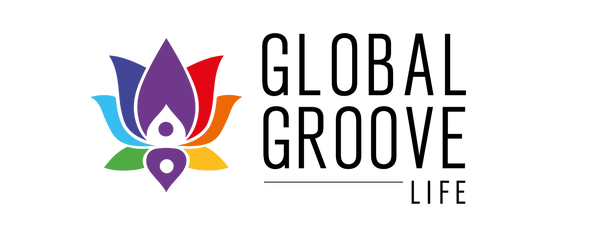Free Trade vs Fair Trade
Greg HopeShare
“This is Gina - she runs a free trade company!”
“No, no, actually, I run a fair trade company.”
“Oh… what’s the difference? Aren’t they the same?”
Ohhh boy. Today we’re going to clean up one of the biggest misconceptions we butt up against frequently in our work with Global Groove Life.
The conversation above is one we have pretty often, and it’s a mistake that even the most well-meaning people make, without even realising they’re doing it. Every so often, someone will refer to what we do as free trade, rather than fair trade.
And I get it - it’s confusing! The phrases are really similar. Thing is though, they mean really different things. Really different things.
Free Trade is defined as:
“The unrestricted sale and purchase of goods and services between countries without the imposition of constraints such as tariffs, duties and quotas.”
Fair Trade is defined as:
“A movement whose goal is to help producers in developing countries to get a fair price for their products so as to reduce poverty, provide for the ethical treatment of workers and farmers, and promote environmentally sustainable practices.”
These are both economic systems focused on the purchase and sale of products between countries or communities. But one is focused on profits, and one is focused on people.

Free trade agreements are generally employed by the governments of wealthy nations when dealing with the governments of developing nations.
These agreements generally remove the barriers to countries doing business, such as high import taxes or price controls that might otherwise come into play.
Proponents of free trade believe that businesses should succeed or fail based on whether they can compete in the marketplace. They believe that each business should be capable of meeting the demands of its customer base, and stay ahead of its competitors, without needing any special government involvement to protect workers or regulate practices.
The principle at work here is that a voluntary exchange between the business, their customers and their workers will ultimately result in fairness for all involved.
Fair Trade is about doing business ethically. Its main concern is about the end producer: how they are treated and how their resources are managed, rather than whether the government of their country is being charged export taxes on their products.
Proponents of Fair Trade argue that trade between developed countries and developing countries is skewed in favour of the developed country. They believe trade should take place on more equitable terms, with mutual advantage resulting for both parties.
Fair Trade aims to pay producers (such as farmers, tailors and jewelers) a living wage; that is, a wage that enables them to live comfortably in their community, instead of living hand to mouth despite doing demanding and time-consuming work. This stands in direct contrast to the free trade model, where paying the producer less is an acceptable way of increasing a company’s total revenue.
According to Fairtrade.org, free trade introduces an exploitative mechanism which impoverishes those in the Third World:
"Particularly in the field of trade, our area of attention, the law of the strongest is frequently the only law. In Asia, Africa and Latin America, both male and female craftsmen and farmers know all about this. If they cannot free themselves from the grasp of the numerous middlemen and buyers, who from their position of power prescribe the lowest prices, they will remain slaves of circumstances their entire lives."
To combat this, most Fair Trade business trade with local producers at ‘supracompetitive’ prices - they pay more than the standard market price in order to alleviate the cycle of poverty and hopelessness producers would otherwise face.
This is an extensive topic, and really today we’ve just scratched the surface! But now you know the difference:
